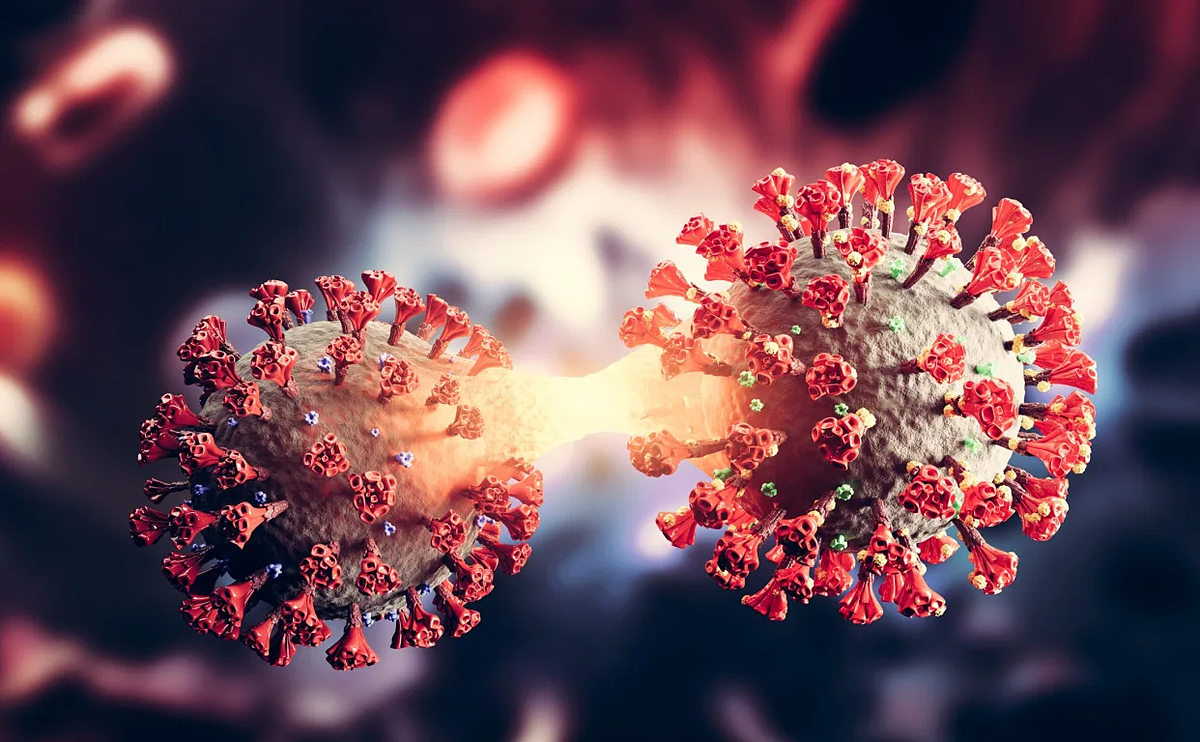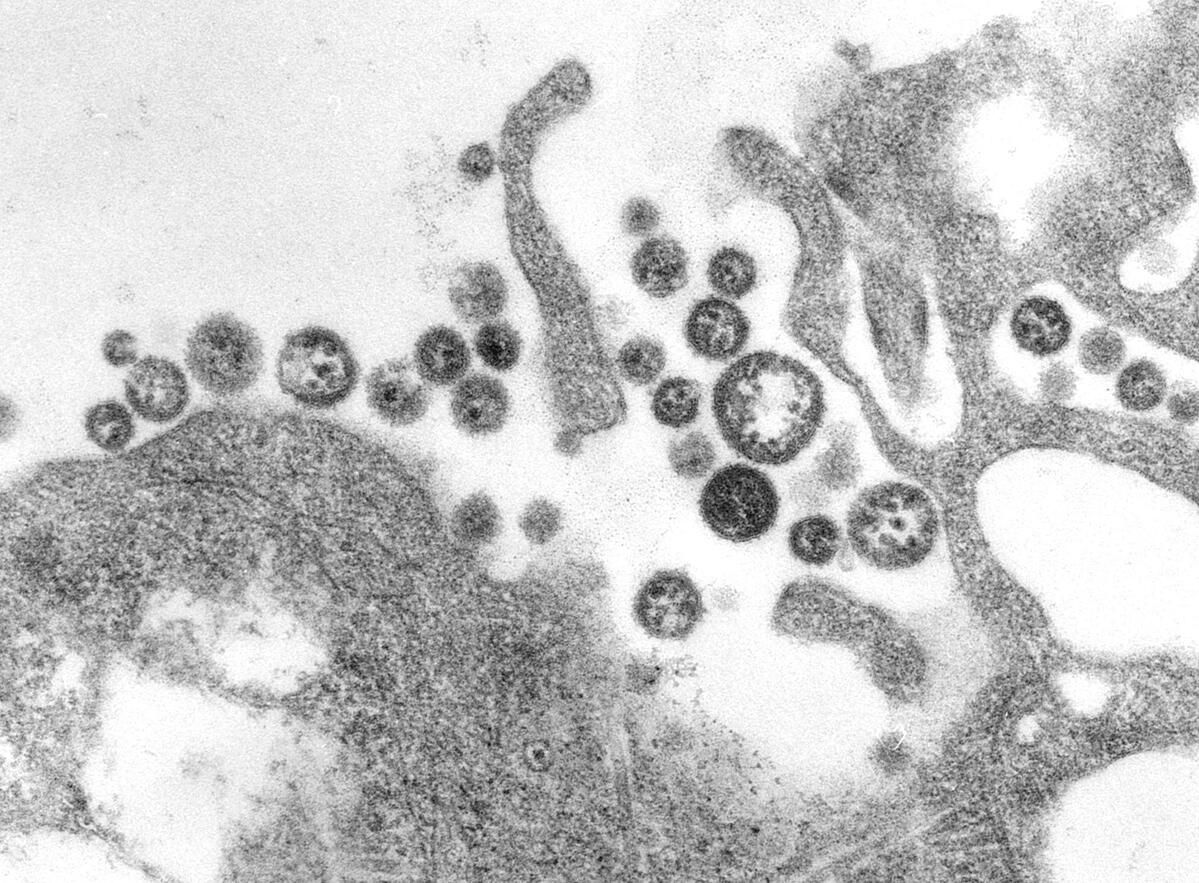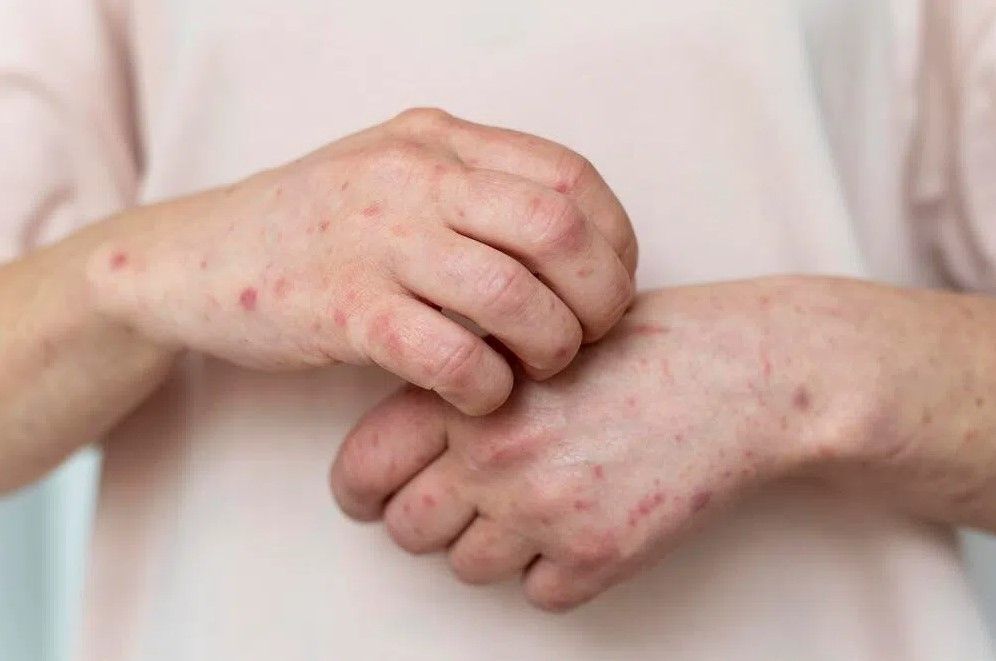5 month old baby went into shock with dengue fever after 3 days of mild fever
A 5-month-old baby girl had a mild fever for three days, coughed and runny nose, and on the 4th day, she went into critical dengue shock and had to be moved nearly 200 km from Binh Thuan to Ho Chi Minh City.
On November 5, Doctor Nguyen Minh Tien, Deputy Director of the City Children's Hospital, said the baby was admitted to the local hospital with many petechiae on his limbs and abdomen, and his blood pressure dropped significantly. Tests showed that platelet capacity increased nearly twice as much as normal, platelets decreased more than 10 times, and liver enzymes increased.
The baby was diagnosed with severe dengue shock. This is a dangerous complication. If not treated promptly, the patient can suffer multi-organ failure and death. The doctor treated the patient aggressively according to the protocol, but the baby was too young and plump (7.2 kg), and it was difficult to establish a transmission line, so the doctor transferred the hospital to Ho Chi Minh City.
When admitted to the hospital, the child was pale and his blood pressure was difficult to measure. Doctors pricked the upper tibia in the leg to make an infusion of anti-shock fluid and electrolyte solution, then changed to a stronger anti-shock drug, a polymer solution.
The baby also had an intravenous line established for blood and blood product transfusions, and liver and respiratory support treatment. After 48 hours, the child's condition gradually improved and became alert.
"When infants go into shock, it is very difficult to establish an intravenous line. Bone marrow injection to create an intravenous line is a necessary emergency procedure to save the child's life," Dr. Tien said.

According to Dr. Tien, dengue fever can attack infants, some cases have atypical symptoms such as mild, moderate fever, intermittent coughing, runny nose, sneezing, or diarrhea, vomiting... This symptom can easily be mistaken for respiratory diseases, digestive diseases, infections or hand, foot and mouth disease... so it is necessary to take the child to a medical facility with a pediatrics department for examination and testing to accurately diagnose the disease. timely treatment.
Children cannot speak or express symptoms, so parents need to closely monitor the condition. "The fever-free period, around day 4-5 of disease onset, is the most dangerous time of dengue fever," Dr. Tien recommended.
About 10-20% of patients have no fever but are more tired, have rashes on their hands and feet, pain in the right abdomen, nausea, and in more severe cases, bleeding teeth, nosebleeds, vomiting blood, bloody stools, cold hands and feet .
* SOURCE: https://vnexpress.net/be-5-thang-soc-sot-xuat-huyet-sau-3-ngay-sot-nhe-4673160.html









 Facebook
Facebook
 Tweet
Tweet
 Zalo
Zalo







 News
News

















 Sign in with Facebook
Sign in with Facebook
 Sign in with Google
Sign in with Google